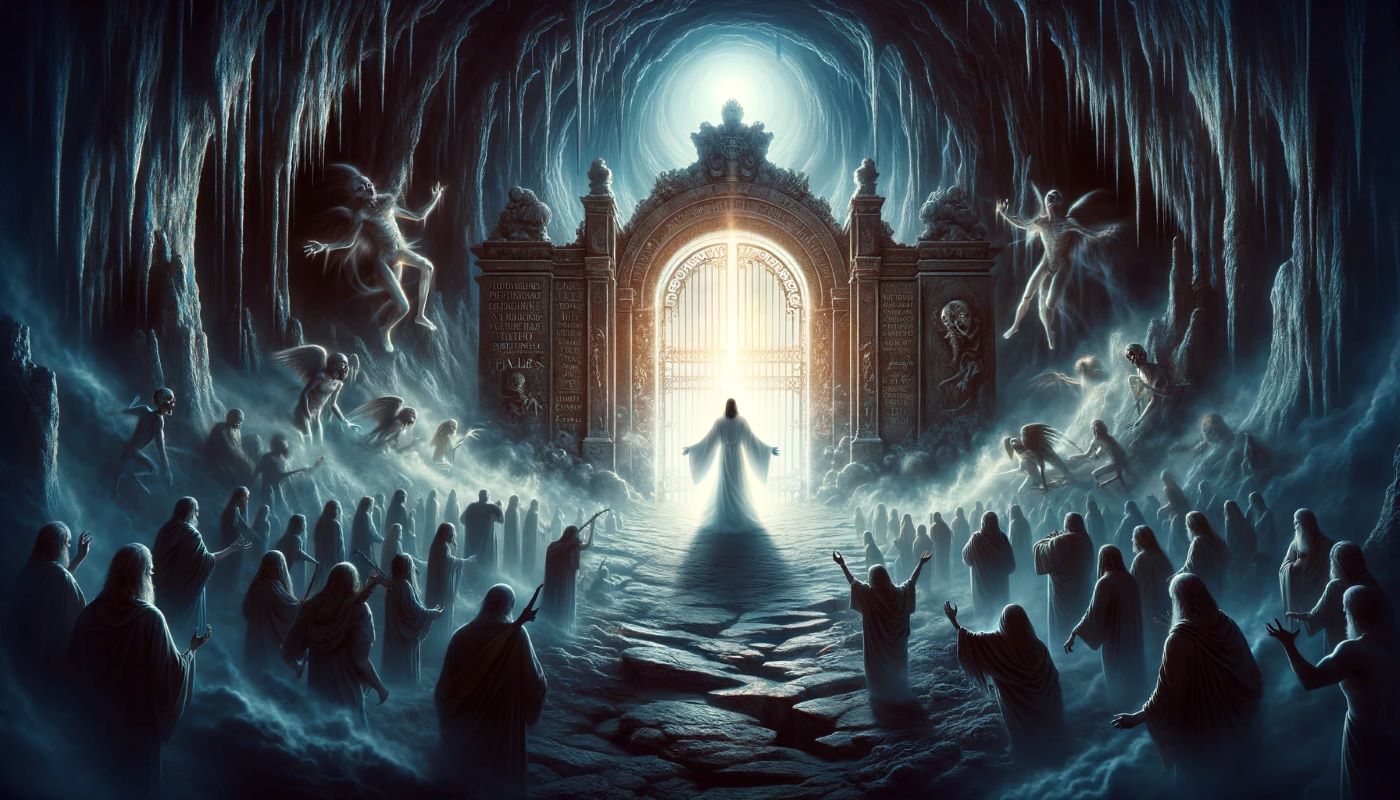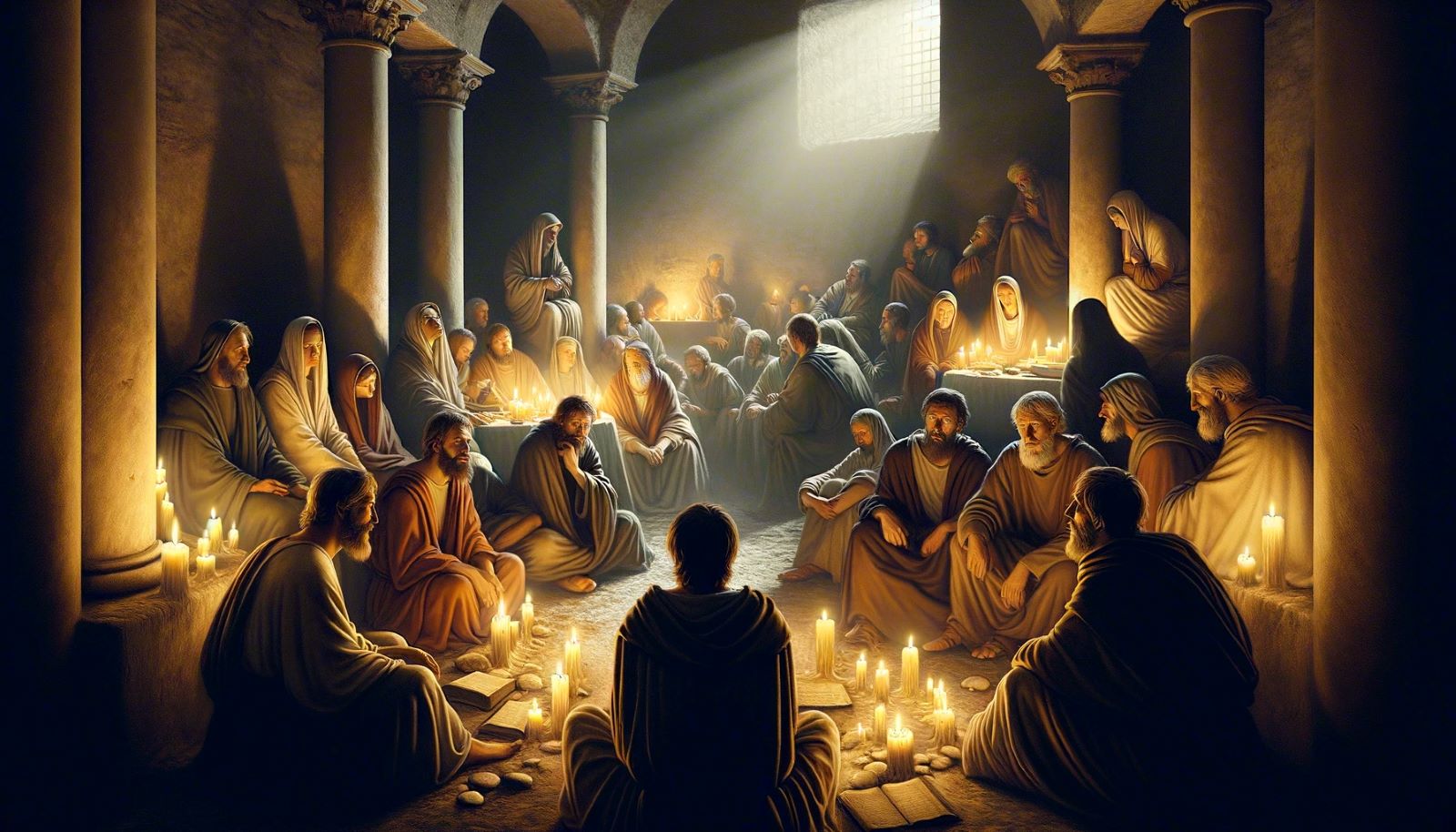Home>Theology and Spirituality>Why Creeds And Lutheran Confessions?


Theology and Spirituality
Why Creeds And Lutheran Confessions?
Published: March 3, 2024
Ericka Andersen, an editor at Christian.net, expertly merges digital strategy with content creation, focusing on faith and societal issues. Her communication skills enhance the platform's engaging narratives, fostering meaningful dialogue on belief's impact on society.
Explore the significance of creeds and Lutheran confessions in theology and spirituality. Understand their role in shaping beliefs and practices.
(Many of the links in this article redirect to a specific reviewed product. Your purchase of these products through affiliate links helps to generate commission for Christian.net, at no extra cost. Learn more)
Table of Contents
The Importance of Creeds
-
Defining Beliefs: Creeds serve as concise statements of faith that define the core beliefs of a religious tradition. They provide a clear and easily understandable summary of essential doctrines, serving as a foundation for the faith of believers.
-
Unity and Identity: Creeds unify believers by providing a common set of beliefs and values. They create a sense of identity and belonging within a religious community, fostering a shared understanding of what it means to be a part of that faith tradition.
-
Historical Continuity: Creeds connect believers to the historical roots of their faith. They often reflect the teachings of early church leaders and the foundational principles of the religion, establishing a link between contemporary believers and the ancient traditions of their faith.
-
Doctrinal Clarity: Creeds help to clarify and articulate the fundamental tenets of a religious tradition. They provide a framework for understanding complex theological concepts and serve as a guide for interpreting scripture and religious teachings.
-
Defending Against Heresy: Creeds act as a safeguard against heretical interpretations of religious doctrine. By clearly stating the orthodox beliefs of a faith, creeds help to protect the integrity of the religion from distortions and deviations.
-
Teaching Tool: Creeds are valuable educational tools, serving as a means of instructing new believers in the foundational beliefs of a religious tradition. They provide a starting point for theological education and help to transmit the core teachings of the faith to future generations.
-
Worship and Liturgy: Creeds are often incorporated into religious worship and liturgical practices. Reciting the creed during communal gatherings reinforces the shared beliefs of the congregation and serves as an act of collective affirmation of faith.
In summary, creeds play a crucial role in defining, unifying, and preserving the beliefs of a religious tradition. They serve as a historical and doctrinal anchor, providing clarity, unity, and continuity within the faith community.
The Role of Lutheran Confessions
-
Doctrinal Foundation: Lutheran Confessions serve as the doctrinal foundation of the Lutheran Church, outlining its beliefs and teachings. They provide a comprehensive summary of Lutheran theology, guiding the faith and practices of its members.
-
Historical Significance: The Lutheran Confessions have historical significance, as they emerged during the Reformation period in the 16th century. They represent a response to theological and ecclesiastical issues of that time, reflecting the unique perspectives and convictions of the Lutheran tradition.
-
Unity and Identity: Lutheran Confessions contribute to the unity and identity of the Lutheran Church. They establish a common set of beliefs and principles, fostering a sense of cohesion and shared purpose among Lutheran congregations and believers.
-
Educational Tool: The Lutheran Confessions serve as an educational tool, providing a resource for the instruction and edification of members. They offer a systematic presentation of Lutheran teachings, serving as a basis for theological education and spiritual growth within the faith community.
-
Guarding Against Error: Lutheran Confessions function as a safeguard against doctrinal error and deviation. They articulate the orthodox Lutheran perspective on key theological issues, helping to preserve the integrity and purity of Lutheran doctrine.
-
Liturgical Use: Lutheran Confessions are often incorporated into the liturgical practices of the Lutheran Church. They may be recited or referenced during worship services, reaffirming the foundational beliefs of the Lutheran faith and reinforcing the communal identity of believers.
-
Contemporary Relevance: While rooted in history, Lutheran Confessions continue to hold relevance in contemporary Lutheran theology and practice. They provide a framework for addressing theological challenges and interpreting the Scriptures within the context of modern society.
In essence, Lutheran Confessions play a vital role in shaping the identity, beliefs, and practices of the Lutheran Church. They serve as a doctrinal compass, guiding the faith community and preserving the distinctive theological heritage of Lutheranism.
Historical Significance of Creeds and Confessions
-
Preservation of Tradition: Creeds and confessions hold immense historical significance as they serve as a means of preserving the traditional beliefs and teachings of a religious community. They encapsulate the foundational doctrines and theological insights that have been passed down through generations, providing a tangible link to the historical development of the faith.
-
Response to Controversies: Throughout history, creeds and confessions have emerged in response to theological controversies and doctrinal disputes within the church. They represent the collective wisdom and discernment of early Christian communities and reformers who sought to address and clarify essential matters of faith amidst theological challenges and disagreements.
-
Shaping Church Councils: Creeds have played a pivotal role in shaping the decisions and outcomes of significant church councils. The Nicene Creed, for example, was formulated and affirmed at the First Council of Nicaea in 325 AD, establishing a foundational statement of Christian belief and influencing the course of Christian history.
-
Reformation Era: The Reformation era witnessed the formulation of confessions such as the Augsburg Confession and the Westminster Confession of Faith. These documents not only delineated the theological convictions of emerging Protestant movements but also sparked transformative shifts in the religious landscape, leading to the establishment of distinct denominational traditions.
-
Cultural and Political Impact: Creeds and confessions have exerted cultural and political influence, shaping the religious identity of societies and impacting the governance of nations. They have been instrumental in defining the boundaries of religious communities and informing the ethical and moral frameworks that underpin legal systems and societal norms.
-
Continuity and Adaptation: Despite the historical significance of creeds and confessions, their relevance extends beyond the past, as they continue to inform and guide contemporary religious practices and theological discourse. While rooted in historical contexts, these statements of faith provide a framework for ongoing theological reflection and adaptation to the evolving needs of the faith community.
In essence, the historical significance of creeds and confessions lies in their role as custodians of tradition, responders to theological challenges, influencers of church councils, catalysts of reform, shapers of culture and politics, and sources of continuity and adaptation within the ever-changing tapestry of religious history.
How Creeds and Confessions Shape Lutheran Identity
-
Doctrinal Foundation: Creeds and confessions serve as the doctrinal bedrock of Lutheran identity. They articulate the core beliefs and theological distinctives that define the Lutheran tradition, providing a framework for understanding the faith and shaping the collective identity of Lutheran believers.
-
Historical Continuity: Creeds and confessions connect Lutherans to their historical roots, anchoring their identity in the rich tapestry of the Reformation era and the theological insights of Martin Luther and other reformers. They serve as a reminder of the historical journey of the Lutheran Church and its enduring commitment to specific theological principles.
-
Unity and Communion: Through the affirmation of creeds and confessions, Lutherans express their unity and communion with the global Lutheran community. These statements of faith create a shared theological language and a sense of belonging among Lutherans worldwide, fostering a cohesive identity that transcends geographical and cultural boundaries.
-
Distinctive Theological Emphases: Creeds and confessions shape Lutheran identity by highlighting the distinctive theological emphases of the tradition, such as the doctrine of justification by grace through faith, the sacramental theology, and the priesthood of all believers. These core teachings form the theological DNA of Lutheranism, shaping the identity and mission of Lutheran congregations and institutions.
-
Educational and Formative Tool: Creeds and confessions serve as educational and formative tools within Lutheran communities, nurturing a deep understanding of Lutheran theology and shaping the faith formation of individuals from a young age. They provide a lens through which Lutheran identity is transmitted and cultivated, influencing the beliefs and practices of successive generations.
-
Ethical and Moral Framework: In addition to doctrinal beliefs, creeds and confessions also contribute to shaping the ethical and moral framework of Lutheran identity. They provide guidance on issues of social justice, compassion, and ethical living, informing the ethical decision-making processes of Lutheran individuals and communities.
-
Liturgical Expression: Creeds and confessions find expression in the liturgical life of Lutheran congregations, where they serve as a communal declaration of faith and a reaffirmation of Lutheran identity. Through their inclusion in worship services, these statements of faith become an integral part of the lived experience of Lutheran identity.
In essence, creeds and confessions play a pivotal role in shaping the identity of Lutherans by providing a doctrinal foundation, fostering historical continuity, promoting unity and communion, emphasizing distinctive theological principles, serving as educational and formative tools, guiding ethical and moral frameworks, and finding expression in the liturgical life of the Lutheran community.
The Relevance of Creeds and Confessions in Modern Christianity
-
Doctrinal Clarity and Unity: In the contemporary landscape of Christianity, creeds and confessions continue to be relevant as they provide doctrinal clarity and foster unity within diverse Christian traditions. Amidst theological diversity and differing interpretations of scripture, these statements of faith serve as unifying touchstones, offering a common ground for believers to affirm their shared beliefs and core doctrines.
-
Response to Contemporary Challenges: Creeds and confessions remain relevant in addressing contemporary theological and ethical challenges. They offer a timeless framework for engaging with issues such as social justice, human rights, environmental stewardship, and ethical decision-making, providing a lens through which Christians can navigate complex moral dilemmas and societal concerns in the modern world.
-
Educational and Formative Tool: In an era marked by rapid change and information overload, creeds and confessions serve as essential educational and formative tools within Christian communities. They offer a structured and systematic means of transmitting the foundational beliefs of the faith to new generations, ensuring the continuity of Christian identity and doctrine amidst evolving cultural and intellectual currents.
-
Cultural and Interfaith Dialogue: Creeds and confessions play a role in fostering dialogue and understanding between Christian denominations and in interfaith contexts. By articulating the core tenets of the Christian faith, they provide a basis for constructive engagement and mutual respect, facilitating conversations that seek to build bridges and promote cooperation across religious boundaries.
-
Spiritual Depth and Reflection: For individual believers, creeds and confessions offer a source of spiritual depth and reflection. They provide a framework for personal meditation, prayer, and theological contemplation, enabling Christians to delve into the rich theological heritage of the faith and find resonance with the enduring truths encapsulated in these historical statements of belief.
-
Liturgical and Communal Expression: Within the context of worship and communal gatherings, creeds and confessions continue to hold significance. They serve as a communal declaration of faith, allowing congregations to express their unity and shared beliefs in a collective manner. Through their inclusion in liturgical practices, these statements of faith become an integral part of the lived experience of modern Christian worship.
In summary, the relevance of creeds and confessions in modern Christianity lies in their capacity to provide doctrinal clarity and unity, address contemporary challenges, serve as educational and formative tools, foster dialogue and understanding, offer spiritual depth and reflection, and find expression in the communal worship life of Christian communities.















